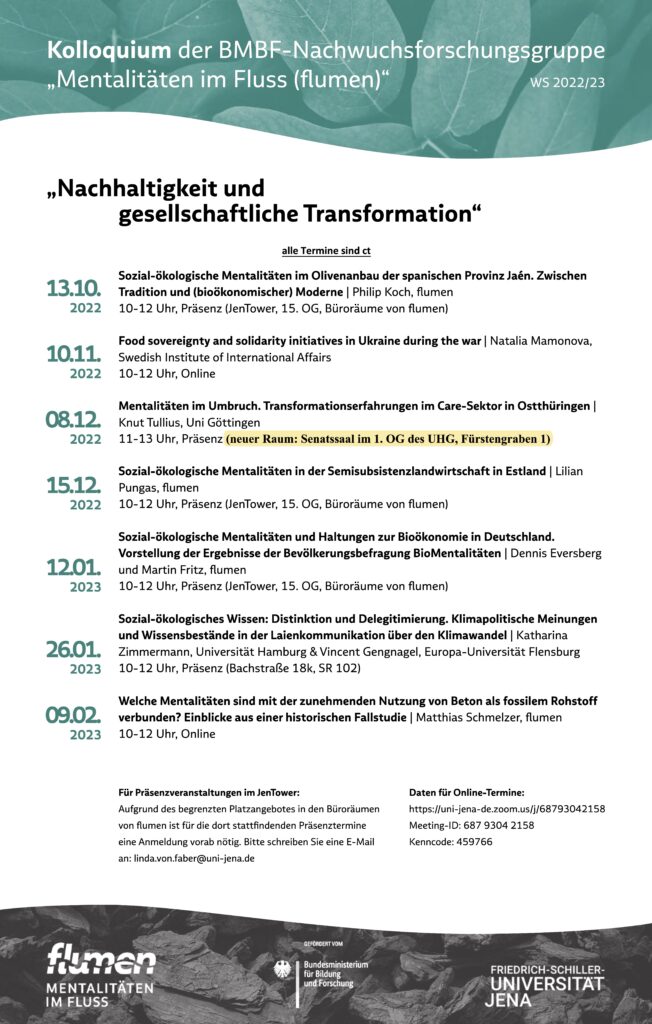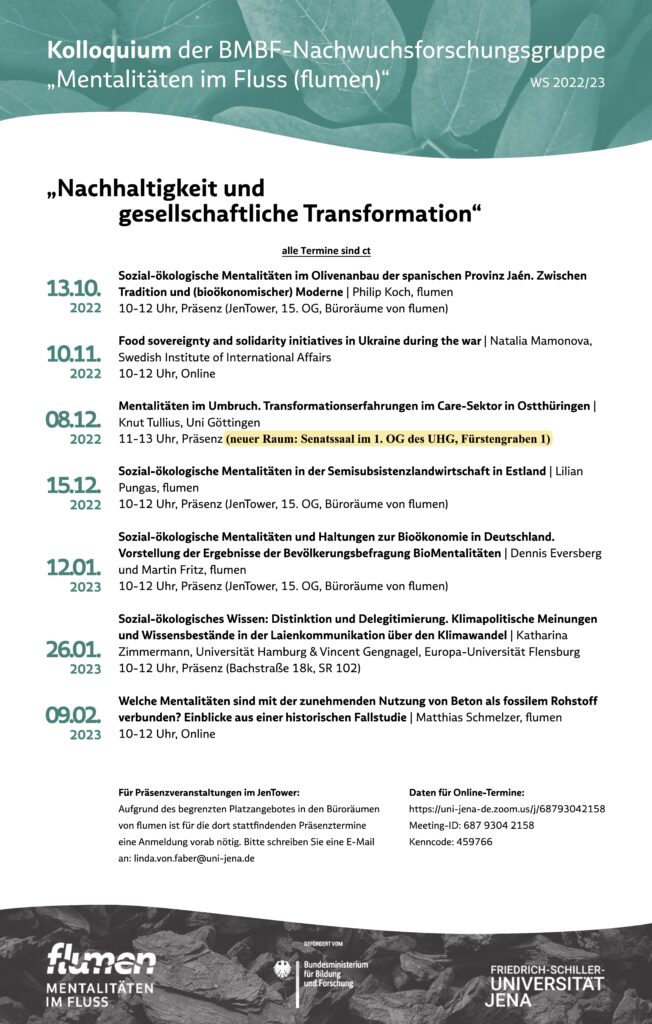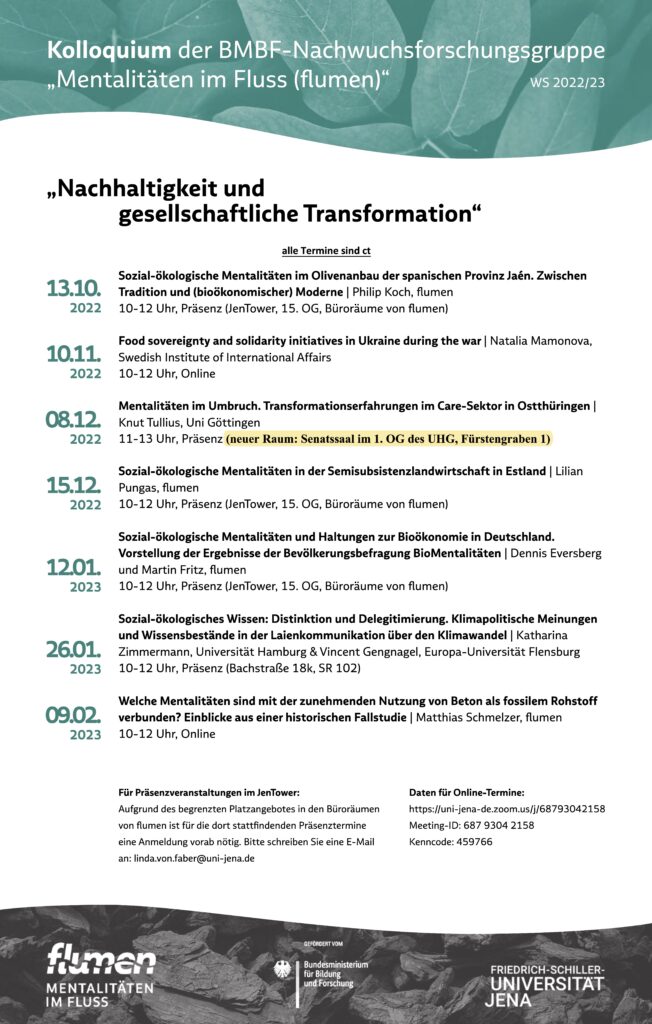On Thursday, 26 January, from 10-12, there will be an online lecture by Katharina Zimmermann and Vincent Gengnagel on “Sozial-ökologisches Wissen: Distinktion und Delegitimierung. Klimapolitische Meinungen und Wissensbestände in der Laienkommunikation über den Klimawandel”. It will take place as part of the flumen colloquium.
Abstract (German):
Welche Positionierungen zur sozial-ökologischen Wende können in sozialen Gruppen mit unterschiedlichem sozioökonomischem Hintergrund sowie unterschiedlichen kulturellen Werthaltungen beobachtet werden und wie verhalten sich diese Positionierungen zu Fragen der gesellschaftspolitischen Steuerung und der wissenschaftlichen Expertise?
Eine gelingende klimapolitische Wende müsste sowohl materielle Risiken der von Strukturwandel betroffenen Bevölkerungsgruppen (z.B. Arbeitsplätze im Kohlebergbau) sowie ungleiche Lastenverteilung neuer Konsummodelle (z.B. Benzinpreise) abfedern. Die oftmals vorausgesetzte Bedingung hierfür ist eine gesamtgesellschaftliche Einsicht in die Notwendigkeit der sozialökologischen Transformation. Diese ist zwar aus wissenschaftlicher Sicht unbestritten, allerdings haben nicht alle Bürger:innen gleichermaßen teil am politischen Diskurs und seinen wissenschaftlich-objektiven Begründungen – und haben verschiedenste Gründe, ihm skeptisch gegenüberzustehen. Das vorgestellte Projekt untersucht, wie klimapolitische Meinungen und Wissensbestände in der Laienkommunikation über Klimawandel vorgetragen werden. Das vorgestellte Material wertet Fokusgruppen aus, die sozialstrukturell und werthaltungsbezogen rekrutiert sind. Sie ermöglichen jeweils homogene Diskursräume zur Artikulation von konservativen und liberalen Werthaltungen in Unter- und Oberschicht, bevor sie diese dann in heterogenen Aushandlungsgruppen aufeinandertreffen lassen. Dabei zeigen sich verschiedene, oftmals aufeinander vermeintlich bezogene diskursive Strategien: Wie die Analyse der Abgrenzungspraktiken und solidarischen Bezugnahmen zeigt, stellen grüne Distinktionsgewinne und die Delegitimierung fossiler Lebensstile einerseits und die reaktionäre Defensive materiell oder symbolisch prekärer Milieus keineswegs eine klare Spaltungslinie dar. Vielmehr werden verschiedene und zum Teil hoch disparate Bezugsnahmen auf klimapolitische Verantwortung und die Gestaltung der Transformation der Gesellschaft vorgenommen. Dabei wird zwar die gesamtgesellschaftliche Herausforderung durchaus adressiert, oftmals aber auch durch Strategien der Tabuisierung oder Delegitimierung alternativer Deutungen umgangen. Diese Entlastungsfunktion wird an Fragen der gesellschaftspolitischen Steuerung und der Politisierung von Expertise besonders deutlich.





